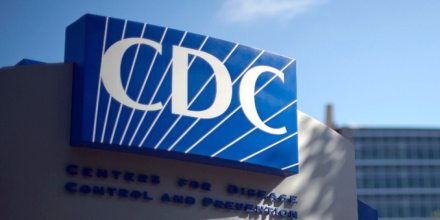Doxycycline Prophylaxis: CDC's Bold Initiative to Curb STI Surges
03.10.2023 posted by Admin

The Centers for Disease Control and Prevention (CDC) has released a preliminary set of guidelines suggesting that doctors should consider prescribing a common antibiotic called doxycycline to combat the spread of specific sexually transmitted infections (STIs).
In this proposed approach, healthcare providers would recommend a single 200 mg dose of the readily available and affordable antibiotic doxycycline within 72 hours after unprotected sexual activity. The goal is to reduce the prevalence of common STIs such as chlamydia, syphilis, and gonorrhea.
These guidelines from the CDC are specifically targeted at certain high-risk populations, including gay and bisexual men, as well as transgender women. It is estimated that this regimen could potentially prevent up to 40 percent of STIs within these communities.
Numerous public health experts have been advocating for federal authorities to consider this guidance, known as doxyPEP, as there is mounting evidence supporting its effectiveness. Some local governments, like San Francisco, have already embraced this approach for their communities.
This proposal comes at a time when reported STIs have been on the rise in recent years, increasing by 42 percent between 2011 and 2021.
However, there are concerns about whether the widespread use of this prescription could contribute to antibiotic resistance, as previously reported by NBC News in February. Some worry that prescribing doxycycline as a post-exposure prophylaxis could potentially do more harm than good in the long run by promoting antibiotic-resistant infections.
The CDC has noted that about 25 percent of gonorrhea bacteria are already resistant to doxycycline. While there is less concern regarding syphilis and chlamydia, as these bacteria have fewer mechanisms to develop resistance, the CDC will closely monitor the possibility of other bacteria becoming resistant due to the widespread use of doxycycline.
A 45-day public comment period has been initiated to gather input on this proposed guideline.
In this proposed approach, healthcare providers would recommend a single 200 mg dose of the readily available and affordable antibiotic doxycycline within 72 hours after unprotected sexual activity. The goal is to reduce the prevalence of common STIs such as chlamydia, syphilis, and gonorrhea.
These guidelines from the CDC are specifically targeted at certain high-risk populations, including gay and bisexual men, as well as transgender women. It is estimated that this regimen could potentially prevent up to 40 percent of STIs within these communities.
Numerous public health experts have been advocating for federal authorities to consider this guidance, known as doxyPEP, as there is mounting evidence supporting its effectiveness. Some local governments, like San Francisco, have already embraced this approach for their communities.
This proposal comes at a time when reported STIs have been on the rise in recent years, increasing by 42 percent between 2011 and 2021.
However, there are concerns about whether the widespread use of this prescription could contribute to antibiotic resistance, as previously reported by NBC News in February. Some worry that prescribing doxycycline as a post-exposure prophylaxis could potentially do more harm than good in the long run by promoting antibiotic-resistant infections.
The CDC has noted that about 25 percent of gonorrhea bacteria are already resistant to doxycycline. While there is less concern regarding syphilis and chlamydia, as these bacteria have fewer mechanisms to develop resistance, the CDC will closely monitor the possibility of other bacteria becoming resistant due to the widespread use of doxycycline.
A 45-day public comment period has been initiated to gather input on this proposed guideline.